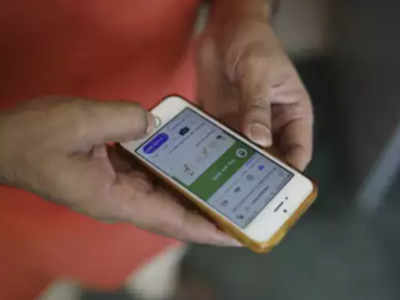WASHINGTON: The top US infectious disease expert warned on Tuesday (May 12) against relaxing coronavirus lockdowns too quickly as France began to reopen schools and Russia and India started getting back to work despite surging virus cases.
Government immunologist Anthony Fauci's stark words fed concerns that even a cautious exit from the world's unprecedented economic shutdown could trigger a second wave of the highly contagious virus.
The US Centers for Disease Control and Prevention (CDC) on Tuesday reported 1,342,594 cases of the new coronavirus, an increase of 18,106 cases from its previous count, and said that the number of deaths had risen by 1,064 to 80,820.
In France, primary and nursery schools reopened with teachers wearing face masks and children's chairs separated to avoid spreading the virus.
French Education Minister Jean-Michel Blanquer hailed the reopening, which will be rolled out gradually throughout the country, including Paris schools on Thursday.
Russia also began to gradually ease lockdown rules even as the country's infections surged past 232,000 - now the second most confirmed cases in the world after the United States.
Russia hit the dire landmark on Tuesday after a week of reporting more than 10,000 daily infections and as it was confirmed that President Vladimir Putin's spokesman tested positive for the virus.
US Vice President Mike Pence's press secretary tested positive last week and the White House said on Tuesday that Pence has decided to "keep his distance" from President Donald Trump for a few days.
In testimony to US lawmakers, Fauci admitted the true number killed by the epidemic in the US is likely higher than the official toll.
And despite Trump's evident desire to restart the economy ahead of the November election, Fauci warned that a sustained 14-day decrease in cases was a vital first step to exiting lockdowns safely.
"If a community or a state or region doesn't go by those guidelines and reopens ... the consequences could be really serious," Fauci said.
"There is a real risk that you will trigger an outbreak that you may not be able to control," he added, warning that would not only cost lives, "but could even set you back on the road to trying to get economic recovery".
'NECESSARY MEASURE'
Fauci's warning came after the World Health Organization urged "extreme vigilance" to prevent a second wave of the disease, which has killed more than 289,000 people around the world according to an AFP toll.
In Russia, some parts of the country hummed back to life on Tuesday - the end of a "non-working" period.
For those braving public transport, masks and gloves were a must in line with new anti-virus rules.
"It's a necessary measure," said 25-year-old Tatiana Khan, speaking on a half-empty bus in Moscow.
"If everyone had worn masks from the start, observed the precautions, I think we wouldn't have had such a spread of the epidemic," she added from behind a surgical mask.
Indian Prime Minister Narendra Modi announced a US$270 billion economic stimulus as the Asian giant's economy lumbers back to life.
Its giant railway network restarted in defiance of a recent surge in the number of infections, with 3,600 recorded on Monday, just below Sunday's record tally.
The country of 1.3 billion imposed a strict shutdown in late March, which Modi's government has credited with keeping cases to a modest 70,000, with around 2,300 deaths.
Masked passengers queued outside New Delhi station on Tuesday, waiting to be screened for virus symptoms.
Ajay Dewani, a photographer, said he walked for four hours to get to the station.
"I haven't been paid for two months and my landlord was hassling us for rent," Dewani told AFP.
Iran, meanwhile, said it would reopen mosques for three nights this week, after struggling to contain the outbreak that has killed more than 6,700 people there.
'RADICALLY TRANSPARENT'
South Korea, credited with one of the world's more successful anti-virus campaigns, said it was using mobile phone data to track Seoul nightclub visitors after a cluster of new cases.
The outbreak - which forced a delay in reopening schools - hit gay venues and potential carriers may fear coming forward because of the stigma surrounding homosexuality.
And in Britain, which has Europe's most confirmed fatal cases, the Office of National Statistics said reports from care homes for the elderly suggest a government tally of 32,065 deaths underestimates the full toll.
Precautionary economic and social lockdowns have cut a swathe through the global economy and, while many areas are now cautiously moving back to work, world markets are treading cautiously amid fears of a second wave.
The Nasdaq's six-day winning streak ended on Tuesday as US stocks pulled back after Fauci's warnings about reopening the economy too quickly.
Observers are nervously eyeing Wuhan, where the virus was first reported late last year, after the Chinese city registered the first cluster of new COVID-19 infections since it reopened after a 76-day lockdown on Apr 8.
Chinese authorities moved to test the entire 11-million strong population after the new cases came to light.
In an interview with AFP, US epidemiologist Larry Brilliant urged China to be "radically transparent" with medical investigators.
Scientists believe the virus jumped from bats to humans in a Wuhan market but there have been unproven claims - including from Trump - that the disease somehow escaped from a Chinese lab.
Download our app or subscribe to our Telegram channel for the latest updates on the coronavirus outbreak: https://cna.asia/telegram
Let's block ads! (Why?)
https://news.google.com/__i/rss/rd/articles/CBMibmh0dHBzOi8vd3d3LmNoYW5uZWxuZXdzYXNpYS5jb20vbmV3cy93b3JsZC9jb3ZpZC0xOS1jb3JvbmF2aXJ1cy10b3AtdXMtZXhwZXJ0LXByZW1hdHVyZS1leGl0LWxvY2tkb3duLTEyNzI2MDkw0gEA?oc=5
2020-05-12 17:59:12Z
CBMibmh0dHBzOi8vd3d3LmNoYW5uZWxuZXdzYXNpYS5jb20vbmV3cy93b3JsZC9jb3ZpZC0xOS1jb3JvbmF2aXJ1cy10b3AtdXMtZXhwZXJ0LXByZW1hdHVyZS1leGl0LWxvY2tkb3duLTEyNzI2MDkw0gEA

